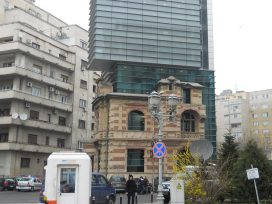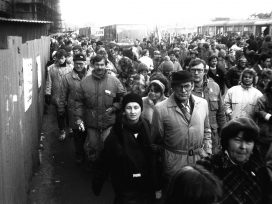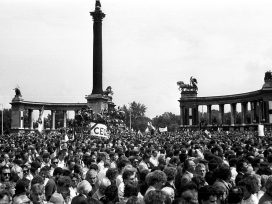History based on falsification is no history
Opening address by Valdas Adamkus, President of the Republic of Lithuania, at the 22nd European Meeting of Cultural Journals
Six decades after the end of World War II, it is evident that history based on falsification is no history, said Valdas Adamkus, President of the Republic of Lithuania, at Opening address the 22nd European Meeting of Cultural Journals. “We cannot allow politically coloured revenge policies to re-enter historical science and replace our cherished values with technologies.”




